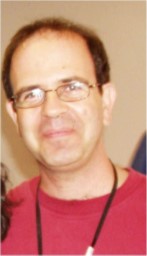
A spacious, upgraded sperm bank and new laboratories have been inaugurated at Hadassah Hospital Mount Scopus.
Decorated with dozens of pictures of babies, who were born during the past 20 years thanks to the Hadassah fertility unit’s devoted team of physicians, nurses, and technical staff, the sperm bank offers such services as advanced sperm-quality screening. “A regular test may conclude that a certain sperm quality is very low,” explains Sperm Bank Director Dr. Yuval Bdolah; “however, with the fine resolution setting on the sperm scan available at Hadassah, “we are able to identify good cells that can be used for the fertilization process. These few single cells can be the last hope for some couples who are trying to have a child.”
Established in 1986, the sperm bank serves people from across the country, with its main beneficiaries being single women who wish to be impregnated with donor sperm. Despite the city of Jerusalem’s conservative image, the number of single women coming to the sperm bank is on the rise, says Dr. Bdolah. “With the change in the Israeli attitude toward single parenting, there are more women asking for our services,” he says. “While there are private facilities offering their services at a very high cost,” Dr. Bdolah reports, ”we are a public sperm bank and will accommodate every person who comes to us. Our patients include women from all backgrounds and all walks of life.”
At the same time, Dr. Bdolah notes that potential donors are on the decline because they fear being exposed. There is a public debate about the ethics of donor identity and a call for regulation of sperm banks. Dr. Bdolah relates that he was invited to address Israel’s Knesset on the topic and warned that a public debate on such discreet matters will push away donors. “We must remember,” he says. “that we depend on the good will of donors.”
Dr. Bdolah explains: “We’re not asking for combat soldiers and six-foot tall men. The donation is anonymous and there is no way the donors can be traced.”
Hadassah’s sperm bank is also a place where men suffering from oncological diseases can have their sperm frozen for later use. In addition, there are plans for technological expansion. New methods for testing the DNA structure of sperm, for example, will provide new possibilities for diagnosing and treating fertility problems at Hadassah.
